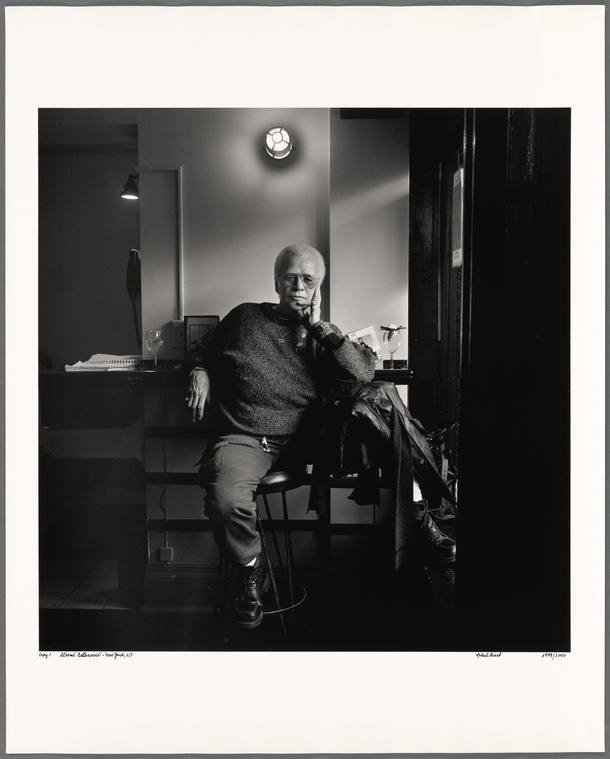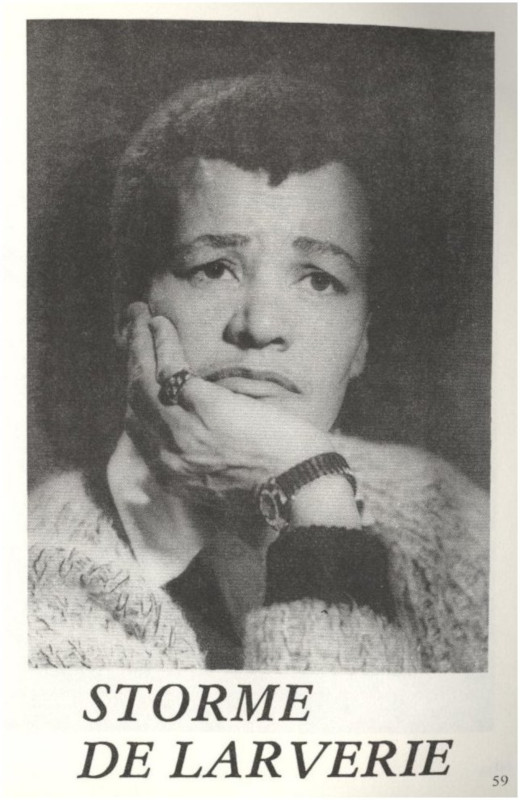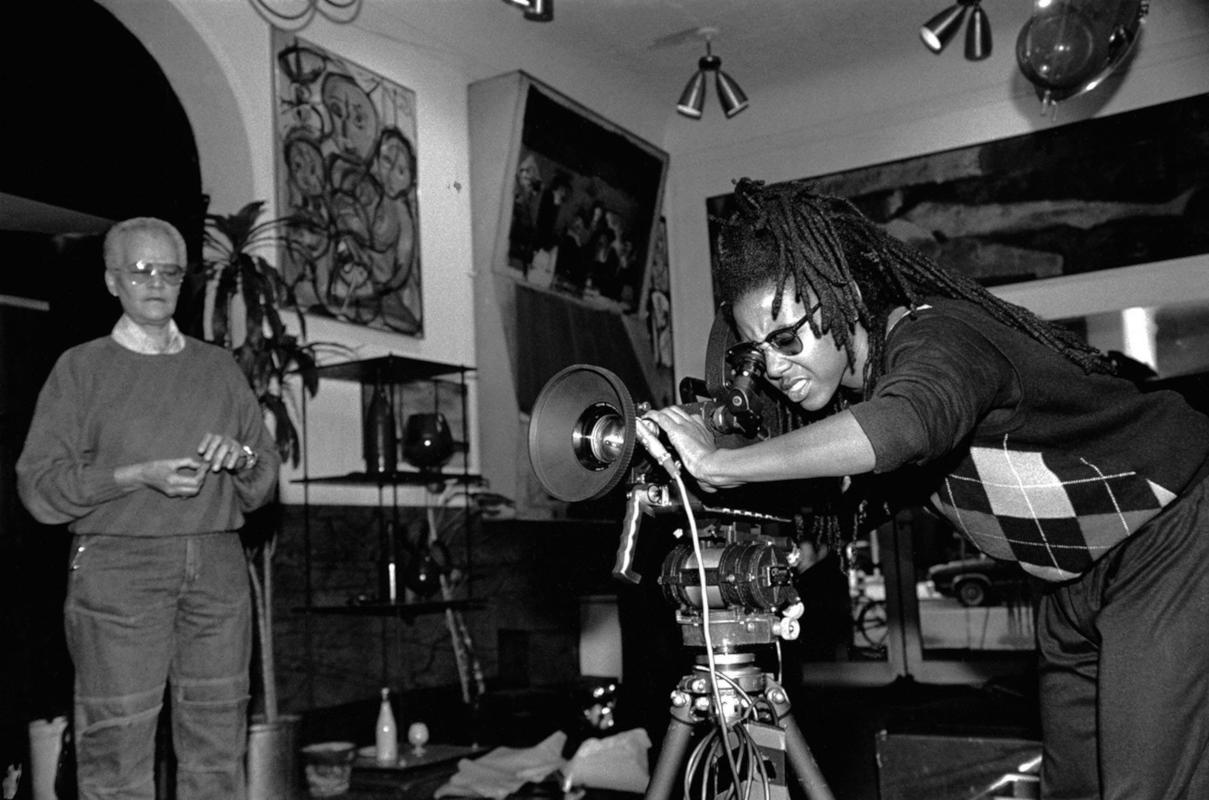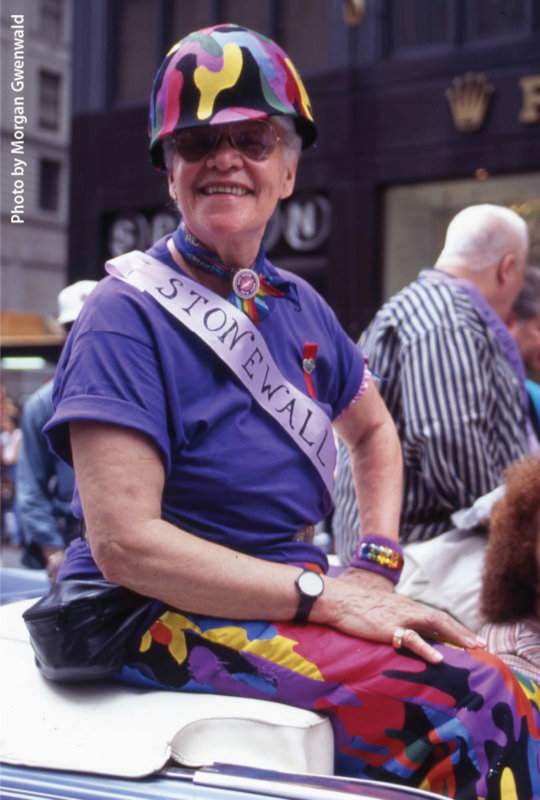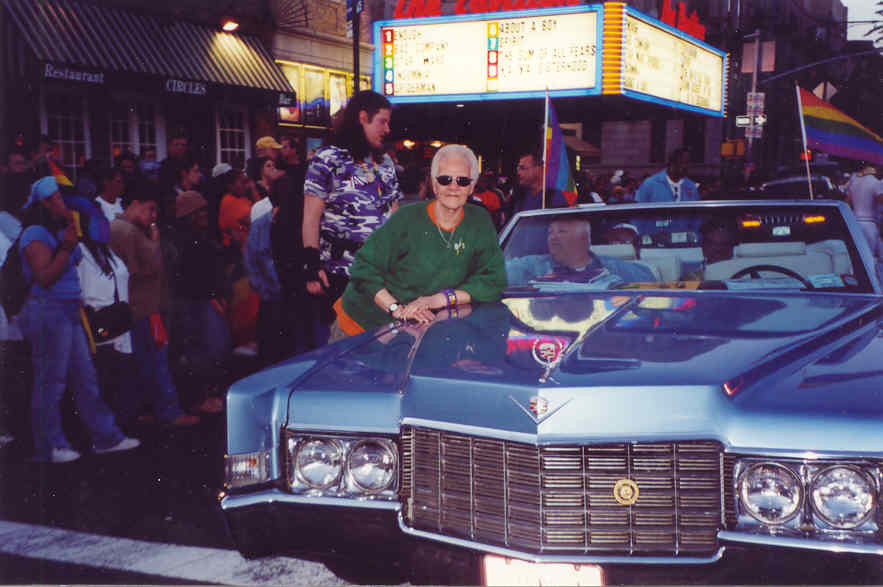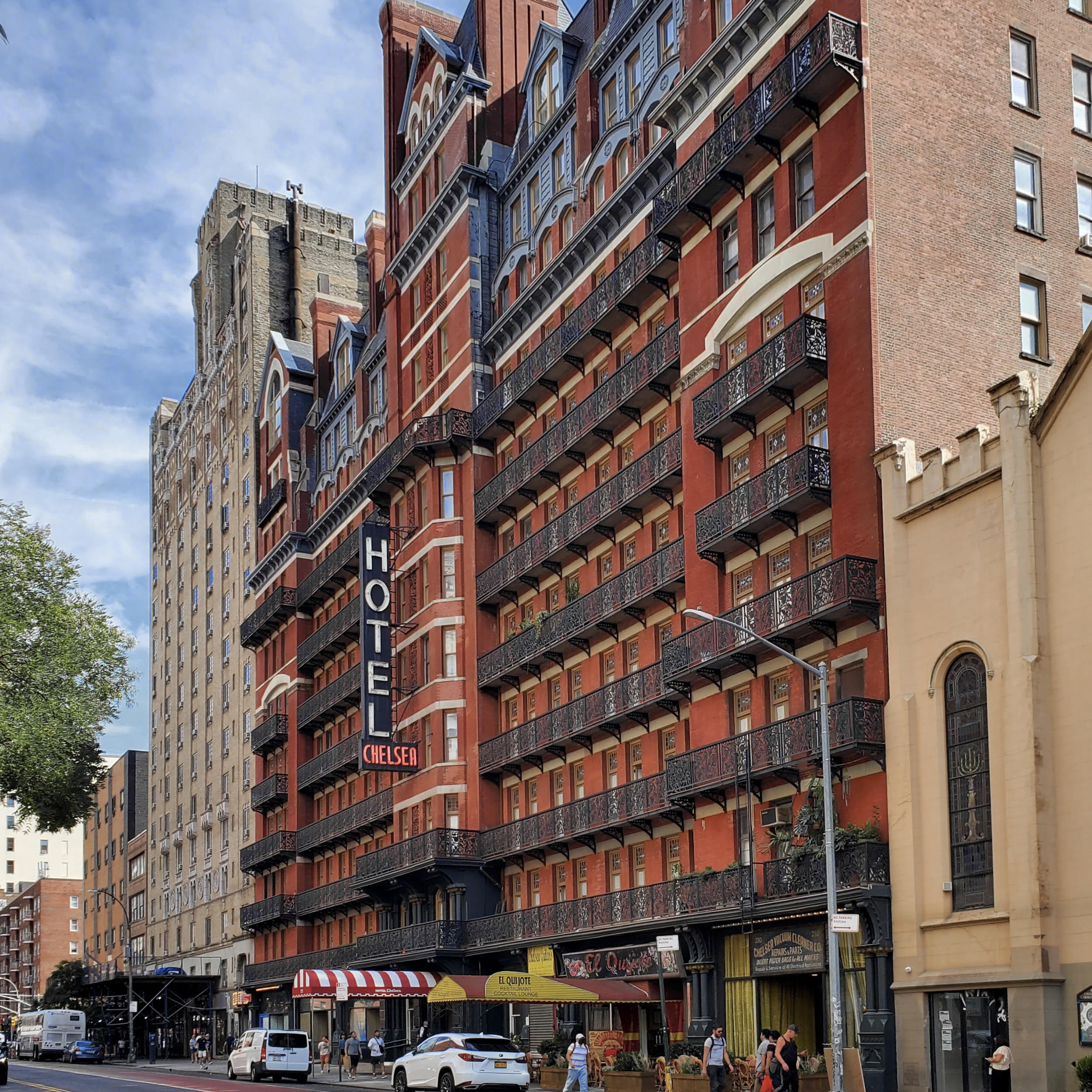
Stormé DeLarverie Residence at the Chelsea Hotel
overview
Stormé DeLarverie, a biracial singer, male impersonator, activist, and bouncer, lived on the seventh floor of the Chelsea from the early 1970s until 2010.
See the Chelsea Hotel and the Virgil Thomson Residence at the Chelsea Hotel for more information on this site’s LGBT history.
History
Born to a Black mother and white father in Jim Crow-era New Orleans, Stormé DeLarverie (1920-2014) rose to prominence as the emcee and sole male impersonator of the Jewel Box Revue, a racially integrated group of female impersonators founded in Miami around 1939 by lovers Danny Brown and Doc Brenner. From 1955 to 1969, DeLarverie toured around the US and Canada with the Revue, including New York, where they headlined at the Apollo Theater in Harlem, Bal Tabarin (demolished) at 225 West 46th Street and Loew’s State Theatre at 1540 Broadway (demolished) in Times Square, Shore Theater at 1301 Surf Avenue in Coney Island, Maksik’s Town & Country Club (demolished) at 2544 Flatbush Avenue in Brooklyn’s Marine Park neighborhood, and Hillside Theatre (demolished) at 90-29 Sutphin Boulevard in Jamaica, Queens.
Many consider DeLarverie’s gender non-conformity, both on and off stage, to have influenced the burgeoning popularity and societal acceptance of gender-fluid expression. In Michelle Parkerson‘s Storme, Lady of the Jewel Box (1987), a short documentary that profiled DeLarverie’s career and life, Joan Nestle emphasized her influence:
Entertainers like Storme challenged us to cross lines. They did it for us in their presentations but they made our imaginations explore the potential of leaving gender or playing with gender.
In 1969, DeLarverie retired from performing with the Revue, shortly after the death of her partner of over 25 years, a dancer named Diana. She moved to the Chelsea in the 1970s and, for much of her time here, worked as a bouncer (she preferred to call herself a “babysitter of my people”) at various Greenwich Village lesbian bars, including DT’s Fat Cat, Cubby Hole, and Henrietta Hudson. Brandishing her pistol, she was also known to patrol the hallways of the Chelsea during its more troubled years in the 1970s and 1980s, while also ensuring that the neighborhood streets were free of what she deemed “ugliness” against the LGBT community.
DeLarverie was alleged to be the documented butch lesbian whose struggle with the police agitated the crowd at the 1969 uprising at the Stonewall Inn. However, as historian David Carter reveals through interviews with witnesses in his book Stonewall: The Riots That Sparked the Gay Revolution (2004), there are many inconsistencies that refute this, and the historic record is unclear whether DeLarverie was even present that night. Regardless, her role in the Jewel Box Revue and her efforts to protect LGBT individuals in the decades that followed Stonewall cemented her as an important figure in the community.
DeLarverie’s contributions were recognized in 2002 with a Gay Lifetime Achievement Award from Senior Action in a Gay Environment (SAGE, now Services & Advocacy for GLBT Elders), and she was selected as an “Imperial King” by the Imperial Kings and Queens of New York. She continued as a bouncer and unofficial watchman well into her 80s, but, by 2010, her diminishing health required that she move to a nursing home in Brooklyn, where she lived until her death in 2014.
See the Chelsea Hotel and the Virgil Thomson Residence at the Chelsea Hotel for more information on this site’s LGBT history.
Entry by Ethan Brown, project consultant (October 2022).
NOTE: Names above in bold indicate LGBT people.
Building Information
- Architect or Builder: Hubert, Pirrson & Company
- Year Built: 1883
Sources
Candice Frederick, “LGBT Icon Storme DeLarverie’s Personal Collection Comes to the Schomburg,” New York Public Library (accessed September 20, 2022), on.nypl.org/3UveQPo.
David Carter, Stonewall: The Riots That Sparked the Gay Revolution (New York: St. Martin’s Press, 2004).
JD Doyle, Queer Music Heritage (accessed September 20, 2022), bit.ly/3SHaGm7.
Manny Hernandez, “A Stonewall Veteran, 89, Misses the Parade,” The New York Times, June 27, 2010 (accessed September 20, 2022), nyti.ms/3dG9JeV.
Michelle Parkerson, Storme, Lady of the Jewel Box (1987). [source of pull quote]
Randolfe Wicker, “Storme DeLarverie Memorial,” YouTube (accessed September 20, 2022), bit.ly/3Sr9fYM.
Do you have more information about this site?
This project is enriched by your participation! Do you have your own images of this site? Or a story to share? Would you like to suggest a different historic site?
